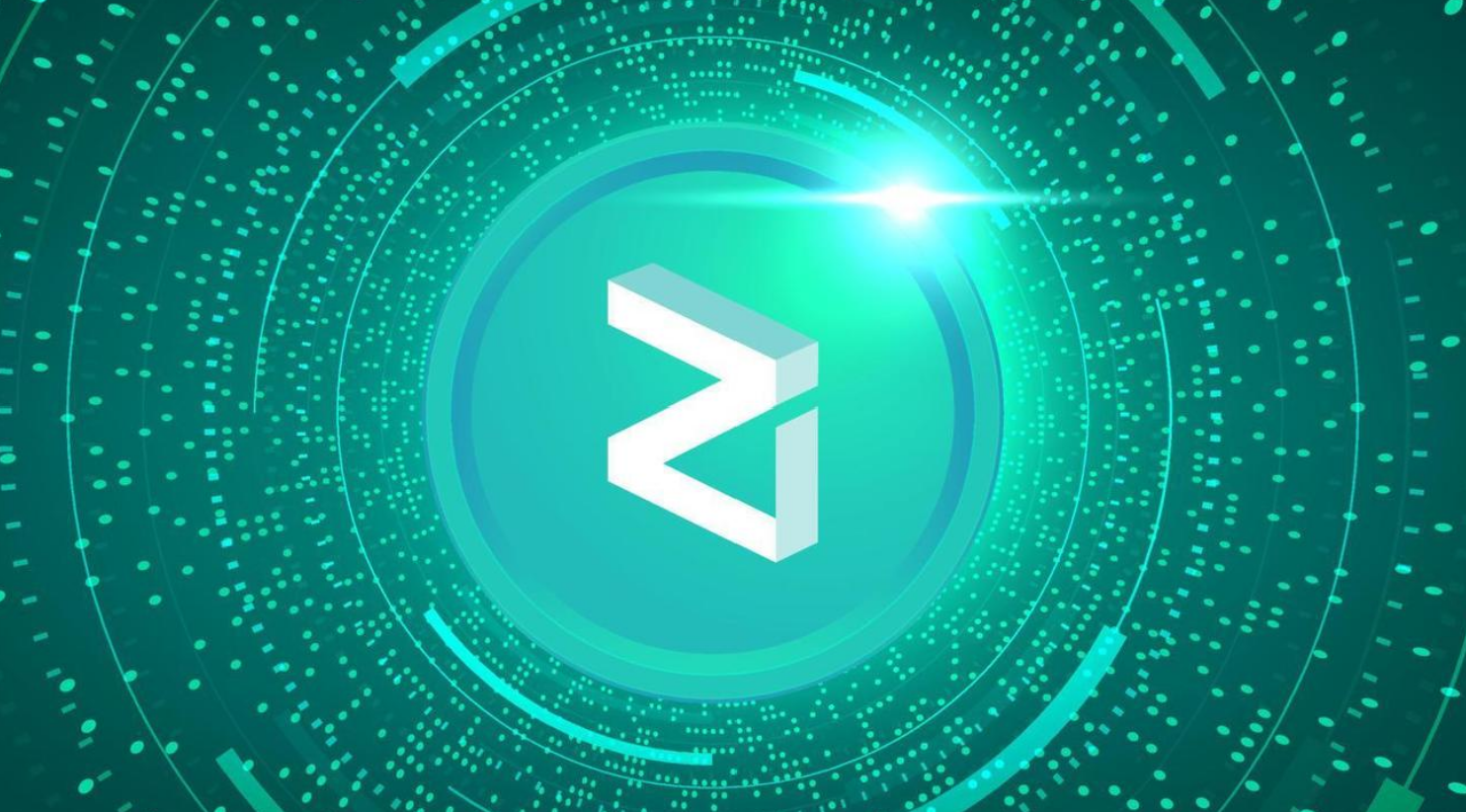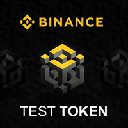-
 Bitcoin
Bitcoin $92,477.6434
-1.11% -
 Ethereum
Ethereum $1,744.7789
-2.50% -
 Tether USDt
Tether USDt $1.0001
-0.01% -
 XRP
XRP $2.1472
-5.15% -
 BNB
BNB $596.6488
-2.31% -
 Solana
Solana $146.8572
-3.16% -
 USDC
USDC $1.0000
0.01% -
 Dogecoin
Dogecoin $0.1732
-4.62% -
 Cardano
Cardano $0.6866
-1.62% -
 TRON
TRON $0.2440
-0.63% -
 Sui
Sui $2.9943
3.75% -
 Chainlink
Chainlink $14.3901
-2.82% -
 Avalanche
Avalanche $21.9130
-3.32% -
 UNUS SED LEO
UNUS SED LEO $9.2481
1.88% -
 Stellar
Stellar $0.2623
-3.64% -
 Toncoin
Toncoin $3.1179
0.54% -
 Shiba Inu
Shiba Inu $0.0...01304
-4.77% -
 Hedera
Hedera $0.1777
-4.20% -
 Bitcoin Cash
Bitcoin Cash $358.9657
0.45% -
 Polkadot
Polkadot $3.9866
-2.91% -
 Litecoin
Litecoin $81.7041
-2.94% -
 Hyperliquid
Hyperliquid $18.0887
-4.08% -
 Dai
Dai $1.0000
0.00% -
 Bitget Token
Bitget Token $4.4473
-2.98% -
 Ethena USDe
Ethena USDe $0.9994
0.01% -
 Pi
Pi $0.6441
-3.30% -
 Monero
Monero $224.1265
-1.26% -
 Uniswap
Uniswap $5.7309
-3.91% -
 Pepe
Pepe $0.0...08439
-7.42% -
 Aptos
Aptos $5.2356
-1.97%
How to get ZIL coins? Understand how to obtain ZIL coins in one article
ZIL coins can be acquired through various avenues such as cryptocurrency exchanges, staking, airdrops, mining, merchant purchases, developing dApps on Zilliqa, and contributing liquidity to ZIL markets.
Oct 30, 2024 at 11:57 am

How to Get ZIL Coins
ZIL (Zilliqa) is a high-throughput, scalable blockchain platform that uses sharding to achieve high transaction speeds. ZIL coins are the native cryptocurrency of the Zilliqa blockchain and are used to pay for transaction fees, gas, and other services on the network.
Here are some of the ways to get ZIL coins:
- Buy ZIL Coins on a Cryptocurrency Exchange
The most common way to get ZIL coins is to buy them on a cryptocurrency exchange. Several exchanges list ZIL, including Binance, KuCoin, and Poloniex.
- Earn ZIL Coins through Staking
ZIL holders can earn ZIL coins by staking their coins. Staking is the process of holding your coins in a wallet that is connected to the Zilliqa blockchain. Staking helps to secure the network and earn rewards in the form of additional ZIL coins.
- Participate in Airdrops and Giveaways
Zilliqa occasionally holds airdrops and giveaways, where they distribute free ZIL coins to participants. To participate in these events, you will typically need to create a Zilliqa wallet and/or perform specific tasks, such as following Zilliqa on social media or retweeting their posts.
- Mine ZIL Coins
ZIL coins can also be mined using specialized hardware, such as ASIC miners. However, mining ZIL coins is not profitable for most individuals, as the cost of electricity and hardware can often outweigh the value of the coins mined.
- Buy Goods and Services with ZIL Coins
A growing number of businesses accept ZIL coins as a form of payment. You can use ZIL coins to purchase goods and services online, such as gift cards, electronics, and gaming items.
- Develop DApps on Zilliqa
Developers can earn ZIL coins by developing and deploying dApps on the Zilliqa blockchain. Zilliqa has a grant program that provides funding to developers who build innovative dApps.
- Provide Liquidity to ZIL Markets
ZIL holders can provide liquidity to ZIL markets on decentralized exchanges, such as Uniswap and SushiSwap. By providing liquidity, you can earn fees from other users who trade ZIL coins.
Conclusion
There are several ways to get ZIL coins, including buying them on a cryptocurrency exchange, earning them through staking, participating in airdrops and giveaways, mining them, buying goods and services with them, developing dApps on Zilliqa, and providing liquidity to ZIL markets. The best method for you will depend on your individual circumstances and risk tolerance.
Disclaimer:info@kdj.com
The information provided is not trading advice. kdj.com does not assume any responsibility for any investments made based on the information provided in this article. Cryptocurrencies are highly volatile and it is highly recommended that you invest with caution after thorough research!
If you believe that the content used on this website infringes your copyright, please contact us immediately (info@kdj.com) and we will delete it promptly.
- Bitcoin [BTC] ETFs Just Pulled Off Their Biggest One-Day Inflow Since November 2024 – a Jaw-Dropping 11,898 BTC
- 2025-04-24 18:30:11
- PancakeSwap Records Highest-Ever Quarter since Inception, But CAKE Price Dips
- 2025-04-24 18:30:11
- PancakeSwap Exchange Rate Soars to New Heights, Driven by Investor Trust and the 3.0 Update
- 2025-04-24 18:25:13
- The 3 Best Cryptos to Buy After Donald Trump Announced an Exclusive Dinner with the Top 220 Holders of His Meme Coin
- 2025-04-24 18:25:13
- XRP, one of the top digital assets in the cryptocurrency world, has been riding a wave of positive sentiment recently
- 2025-04-24 18:20:12
- Bitcoin's wick above the $90K level—thanks to Donald Trump pulling back slightly from the trade war—led to the appearance of a golden cross.
- 2025-04-24 18:20:12
Related knowledge

What is Ethereum’s Slashing mechanism and how to punish malicious behavior?
Feb 20,2025 at 03:08am
Key PointsOverview of slashingDifferent types of slashing in EthereumIncentives and consequences of slashingIdentifying and reporting slashed validatorsOngoing discussions and potential improvementsEthereum's Slashing Mechanism: Punishing Malicious BehaviorEthereum's slashing mechanism is an essential tool for ensuring network security and punishing mal...

What is the verifier node of Ethereum and how to become a verifier?
Feb 19,2025 at 06:00pm
The Verifier Node of Ethereum: A Comprehensive GuideKey Points:What is a Verifier Node?How to Become a Verifier NodeResponsibilities and Rewards of a Verifier NodeMinimum Requirements for Becoming a Verifier NodePotential Difficulties in Running a Verifier Node1. What is a Verifier Node?A Verifier Node is an independent entity on the Ethereum network th...

What is Ethereum’s staking, and how to participate and earn money?
Feb 19,2025 at 04:37pm
Key Points:Understanding Ethereum's Staking MechanismSteps to Participate in StakingBenefits and Rewards of StakingSecurity and Risk ConsiderationsTechnical Requirements and Hardware OptionsPotential Challenges and Troubleshooting TipsFAQs on Ethereum StakingWhat is Ethereum's Staking?Proof-of-Stake (PoS) is a consensus mechanism used in blockchain netw...

What is Ethereum’s DAO (Decentralized Autonomous Organization) and how does it work?
Feb 20,2025 at 03:12am
Key PointsDefinition and Structure of a DAOGovernance and Decision-Making in DAOsBenefits and Use Cases of DAOsChallenges and Limitations of DAOsWhat is Ethereum's DAO (Decentralized Autonomous Organization) and How Does It Work?Definition and Structure of a DAOA Decentralized Autonomous Organization (DAO) is an innovative governance and management fram...

What is Ethereum's multi-signature wallet and how to improve security?
Feb 20,2025 at 02:18pm
Key Points:Understanding the Concept of a Multi-Signature WalletBenefits and Drawbacks of Multisig WalletsRequirements for Setting Up a Multisig WalletStep-by-Step Guide to Generating a Multisig WalletImplementing Strategies for Enhanced Security1. Understanding the Concept of a Multi-Signature WalletA multi-signature (multisig) wallet in the Ethereum e...

What is Ethereum's oracle and how to provide data for smart contracts?
Feb 21,2025 at 01:30am
Key Points:Understanding the concept of oracles in EthereumExploring different types of oraclesDetailed guide on how to provide data for smart contractsAddressing potential challenges and considerationsWhat is Ethereum's Oracle?Oracles are crucial components in the Ethereum ecosystem, enabling smart contracts to access real-world data and off-chain even...

What is Ethereum’s Slashing mechanism and how to punish malicious behavior?
Feb 20,2025 at 03:08am
Key PointsOverview of slashingDifferent types of slashing in EthereumIncentives and consequences of slashingIdentifying and reporting slashed validatorsOngoing discussions and potential improvementsEthereum's Slashing Mechanism: Punishing Malicious BehaviorEthereum's slashing mechanism is an essential tool for ensuring network security and punishing mal...

What is the verifier node of Ethereum and how to become a verifier?
Feb 19,2025 at 06:00pm
The Verifier Node of Ethereum: A Comprehensive GuideKey Points:What is a Verifier Node?How to Become a Verifier NodeResponsibilities and Rewards of a Verifier NodeMinimum Requirements for Becoming a Verifier NodePotential Difficulties in Running a Verifier Node1. What is a Verifier Node?A Verifier Node is an independent entity on the Ethereum network th...

What is Ethereum’s staking, and how to participate and earn money?
Feb 19,2025 at 04:37pm
Key Points:Understanding Ethereum's Staking MechanismSteps to Participate in StakingBenefits and Rewards of StakingSecurity and Risk ConsiderationsTechnical Requirements and Hardware OptionsPotential Challenges and Troubleshooting TipsFAQs on Ethereum StakingWhat is Ethereum's Staking?Proof-of-Stake (PoS) is a consensus mechanism used in blockchain netw...

What is Ethereum’s DAO (Decentralized Autonomous Organization) and how does it work?
Feb 20,2025 at 03:12am
Key PointsDefinition and Structure of a DAOGovernance and Decision-Making in DAOsBenefits and Use Cases of DAOsChallenges and Limitations of DAOsWhat is Ethereum's DAO (Decentralized Autonomous Organization) and How Does It Work?Definition and Structure of a DAOA Decentralized Autonomous Organization (DAO) is an innovative governance and management fram...

What is Ethereum's multi-signature wallet and how to improve security?
Feb 20,2025 at 02:18pm
Key Points:Understanding the Concept of a Multi-Signature WalletBenefits and Drawbacks of Multisig WalletsRequirements for Setting Up a Multisig WalletStep-by-Step Guide to Generating a Multisig WalletImplementing Strategies for Enhanced Security1. Understanding the Concept of a Multi-Signature WalletA multi-signature (multisig) wallet in the Ethereum e...

What is Ethereum's oracle and how to provide data for smart contracts?
Feb 21,2025 at 01:30am
Key Points:Understanding the concept of oracles in EthereumExploring different types of oraclesDetailed guide on how to provide data for smart contractsAddressing potential challenges and considerationsWhat is Ethereum's Oracle?Oracles are crucial components in the Ethereum ecosystem, enabling smart contracts to access real-world data and off-chain even...
See all articles























































































